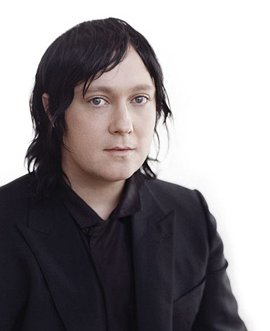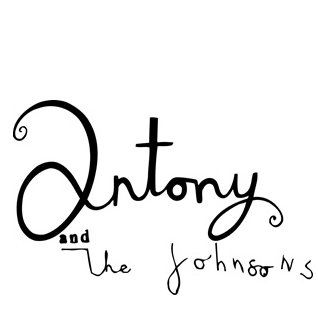| 
As we have learned from Judith Butler, however, “there is no ‘I’ who stands behind discourse and executes its volition or will through discourse”. The “I” comes into being through being called, named, or interpellated.[19] What does this, then, imply for analyzing a song where the singer utters an “I” (as both Antony and Rufus do)? Within a culture dominated by the wish for a clear-cut gender divide, these in-between-ness’es are a challenge. And maneuvering in-between seems to demand some kind of passing. To a certain extent both Rufus and Antony stage dimensions of passing; Antony in a temporal sense, that one might pass for “something else” at another point in time, Rufus in the sense where the “poetic subject” tries to pass as a woman. This resembles Halberstam’s description of identity as “a process with multiple sites for becoming and being”, as a way of articulating a plurality, where identity is exactly not “identity” in the sense of a core.[20] Both Antony and Rufus stage such a “multiple site” in challenging us to hear different subjectivities found in their songs. Where Halberstam describes the bathroom as “a limit of gender identification” there are, then, similarities to the voice.[21] Perhaps we need some kind of suspension of disbelief to be able to negotiate listening to a voice and still being open to it presenting gender ambivalence? |  | 
| 
| 
|  |  | The discussion of diverse forms of “gender deviance” in Halberstam’s use of the “bathroom problem” might also be extended towards a discussion of the voice. Here the quite open definition of “transgender” she articulates in In a Queer Time and Place, might be helpful. “The term transgender”, she writes, “can be used as a marker for all kinds of people who challenge, deliberately or accidentally, gender normativity”, and then she moves on to discuss the voice of the Jazz singer Jimmy Scott.[22] Scott’s voice is in-between, and is also one of the voices compared to Antony’s. The quality of Scott’s voice is due to a medical condition – Kallmann’s syndrome; a hormonal dysfunction – and this gives him a high voice and an androgynous look. Here we find parallels to theories of “vocal drag” or “vocal cross-dressing”. But these terms might be misleading. Discussing gender performativity and drag, the notion of passing comes into play again. One important dimension here is related to different versions of performativity: embodying or performing gender norms on the one hand and the performative use of discourse on the other. But it is also crucial that drag works differently in the visual domain compared to the aural one. Cross-dressing visually is not the same as trying to pass vocally. Also in Halberstam’s discussion we see how the voice might give away the assigned gender of the “gender deviant” person; in other words, how it breaks the spell of cross-dressing and “reveals” the person behind the mask. In the visual domain it is important here to differentiate between cross-dressing and drag, as well as between a theatrical cross-dressing and a “real-life” transgendered “identity”. It might be, that is to say, easier to cross-dress on stage than in “real life”. Related to my two examples it is also crucial to discuss – and not least to challenge – the division between performativity and performance. Butler claims that “the reduction of performativity to performance would be a mistake”.[23] However, this is one of the ways she has been read, and the alternative, or rather, the differentiation between the two, is not necessarily easy to state. Butler claims that “drag is an effort to negotiate cross-gendered identification”, but this seems clearly to be in the visual domain.[24] How could this be translated into the aural domain, as is necessary for the term “vocal drag” to have the same effect? |  | 
| 
| 
|  |  | 
| 
| 
|  |  | 
|  |  | 
|  |  | 
What is happening with Antony? And why does this have consequences for our understandings of gender? In my view there is here a kind of mainstreaming of what used to be known as “deviance.” At the same time we find, in the case of Antony, more of this than the dimensions of gay-aesthetics more commonly taking place within popular music. Not that this is totally new, but there are some differences. Antony, as transgendered, reaches a “mass-audience” and to a certain extent this is new. But we see some possible paradoxes here, and it is not given that such a mainstreaming will open up for acceptance related to gender-identities (or what Halberstam calls gender-deviance). Taking these expressions into mass-culture or mainstream might take away the edge.[25] And it is not given either that the culture is opening up to a broader field of gendered identities. But there is a hope, a hope of acceptance, a hope of the acceptance of difference, and, as Antony himself is singing: “Hope there’s someone …” |  | 
| 
|  |  | Hope there’s someone
Who’ll take care of me
When I die, will I go Hope there’s someone
Who’ll set my heart free
Nice to hold when I’m tired There’s a ghost on the horizon
When I go to bed
How can I fall asleep at night
How will I rest my head Oh I’m scared of the middle place
Between light and nowhere
I don’t want to be the one
Left in there, left in there There’s a man on the horizon
Wish that I’d go to bed
If I fall to his feet tonight
Will allow rest my head So here’s hoping I will not drown
Or paralyze in light
And godsend I don’t want to go
To the seal’s watershed Hope there’s someone
Who’ll take care of me
When I die, Will I go Hope there’s someone
Who’ll set my heart free
Nice to hold when I’m tired |  | | 
|  |  | It might be naïve to see such a hope as being a hope for a greater acceptance of “gender deviance” or “queerness.” On the other hand, that might be one possible consequence of the mainstreaming taking place in the case of Antony. Before 2000 Antony was clearly under the radar, a subcultural phenomenon. But today he is ubiquitous; his voice is heard in the most unlikely places. As Halberstam writes, “the mainstream recognition and acknowledgement of a subculture has the potential to alter the contours of dominant culture,” but she adds that “most of interest directed by mainstream media at subcultures is voyeuristic and predatory”.[26] The voyeuristic dimension might be more difficult to attach to Antony’s voice, and his highlighting both “beautiful boyz”, out-casts, and the rights of transgendered persons, might thus, perhaps, show a way. This is, however, not the only way for a queer musicology to pursue its different tasks. But the strategies employed by Antony might show some possibilities of voicings of queer subjectivities. |  | 
| 
|  |  | 
|  |  |
|